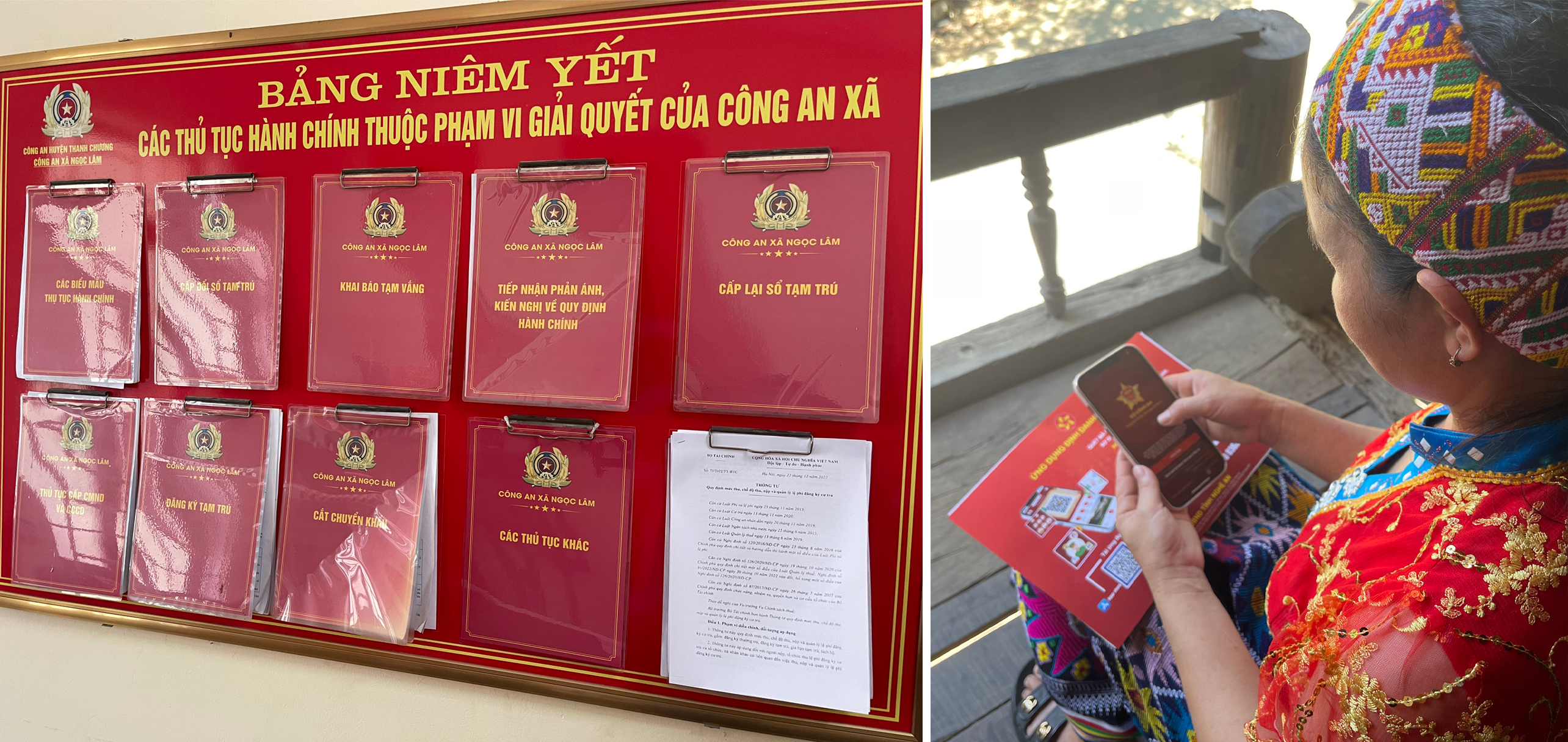


In Vinh city, implementing Official Dispatch No. 2961/UBND-CA dated June 9, 2023 of the City People's Committee on launching the peak emulation campaign "Towards the grassroots, greening electronic identification accounts", however, as of June 19, 2023, the whole city has only activated 95,550/271,926 accounts, reaching only 35.14%, the lowest compared to the whole province, some wards and communes have low activation rates such as: Le Loi (reaching 30.05%), Hung Dung (reaching 26.54%), Hung Loc (reaching 25.37%)...
Report No. 3213/UBND-CA of Vinh City People's Committee also clearly stated that the reason for the low rate of activation of electronic identification accounts is that the leaders of the Party Committees and authorities of wards and communes have not really paid attention, closely followed up, lacked direct inspection, supervision, and drastic implementation direction, and unscientific and untimely methods... In particular, some Ward People's Committee Chairmen still leave it to the police force and youth union members.
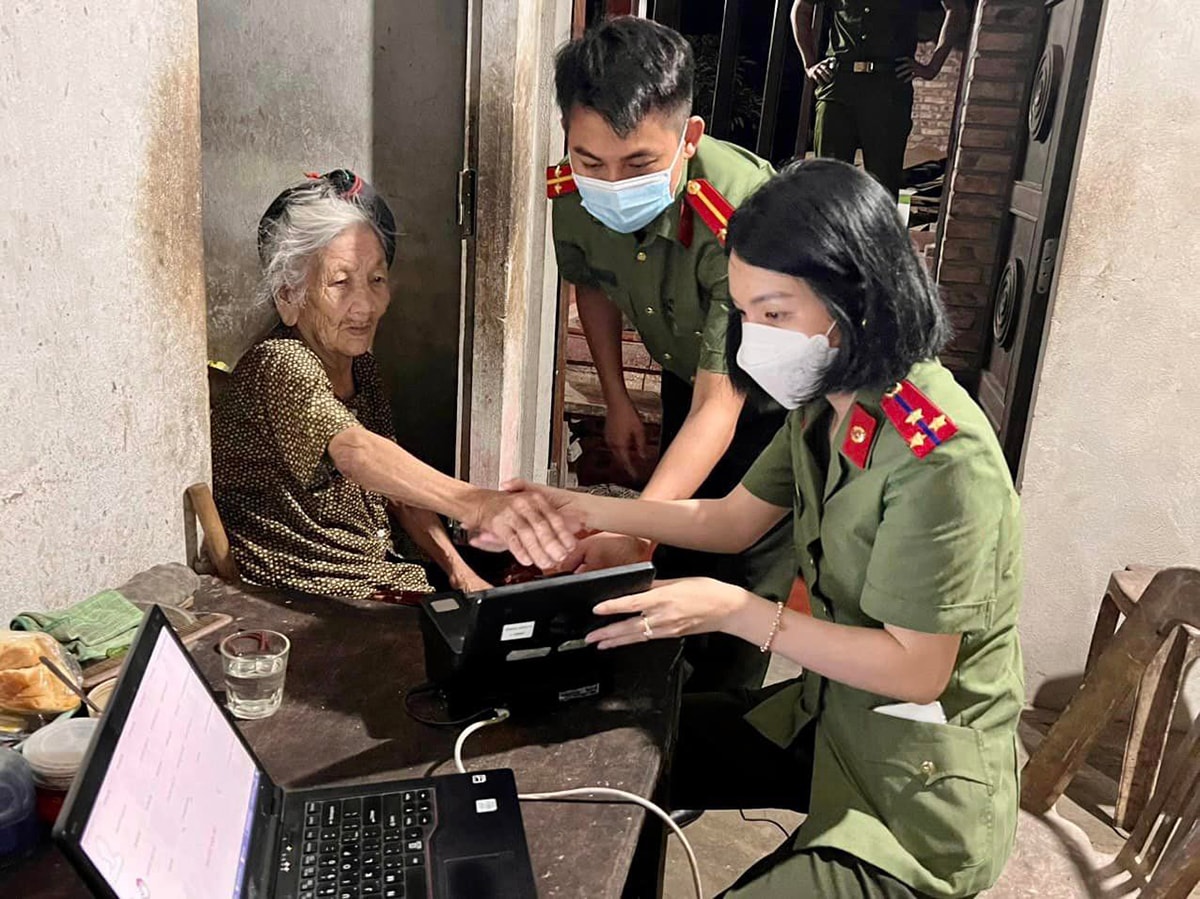
Faced with that reality, the Vinh City People's Committee has reminded a number of wards and communes such as: Quan Bau, Hong Son, Le Mao, Quang Trung, Dong Vinh, Nghi Lien, Nghi Kim. At the same time, severely criticized the wards and communes: Ben Thuy, Hung Dong, Doi Cung, Hung Hoa, Nghi Duc, Cua Nam... The Chairman of the City People's Committee has also requested the City Police to review the responsibilities of ward and commune police chiefs for their lack of determination, flexibility, and creativity in implementation and failure to promptly advise the Party Committee and People's Committee of wards and communes on direction and management. Every day, for any ward or commune with slow progress and low electronic identification account activation rate, the Chairman of the City People's Committee will have a document recommending the Director of the Provincial Police Department to transfer the work positions of those ward and commune police chiefs from the city.
Through practical research, we (PV) recorded many opinions that currently, issuing chip-embedded citizen identification cards and registering to use the VNeID application is extremely difficult. Especially installing the VNeID application, because in reality, the rate of people with a primary SIM card, a smartphone and knowing how to use the application proficiently is very low, especially in the group of elderly people, rural people and mountainous areas in remote and isolated areas. Basically, people do not have the need to install and use this application.
Not to mention, the current VNeID software is not yet complete and still has errors, making it impossible to use this software to replace documents. Even though the household registration book is abolished, because the VNeID software cannot be used as a replacement, people still have to apply for a certificate of residence information.
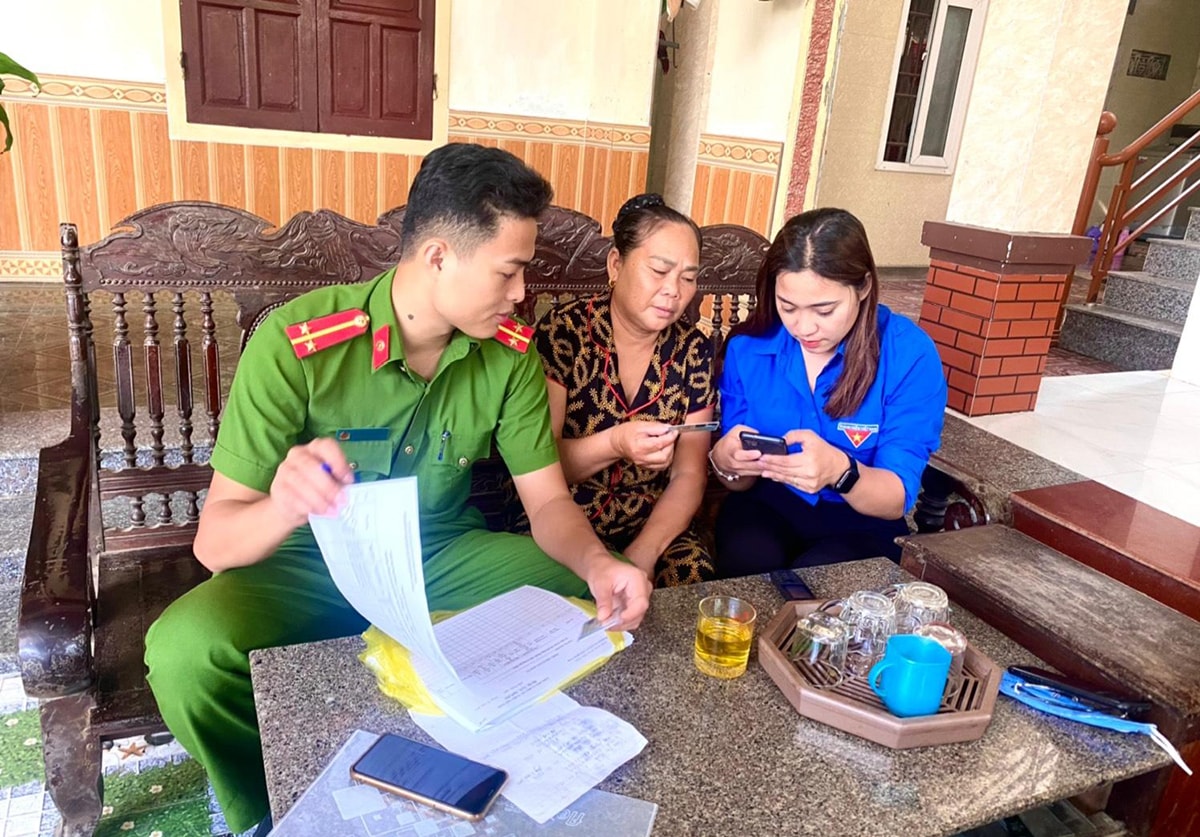
In addition, the implementation of public administrative services according to the current digitalization process also causes many difficulties for officials and civil servants at all levels. Previously, people only needed to bring paper documents to submit to the one-stop department, then the receiving officer would handwrite, or enter them into the computer, then print them out for people to sign and store. Now, when performing online public services, in principle, people can enter information themselves (some people have to ask the officer to enter it for them), take photos of documents and send them to the officer to do it, and then still have to bring those documents back to submit as before. Therefore, for people in rural and mountainous areas, and the elderly, if they are rigid in performing online public services, it will make the processing time of documents slower than before.
According to Senior Lieutenant Ngo Xuan Duy - Police officer of Ngoc Lam commune (Thanh Chuong), Project 06 is a new project, so many times, the awareness of officers and people about the importance of building population data and electronic identification is still inadequate. Not to mention that in mountainous areas, the storage of original documents such as birth certificates, identity cards, household registration books, etc. has not been given attention in the past; in many cases, there are wrong names, wrong documents, so the data does not match. In fact, in Ngoc Lam commune, there are about 100 people who no longer have records or have lost household registration records. To complete the records for these cases, each person takes up to 7 days to complete, making it very difficult for the professional force to complete the population data.
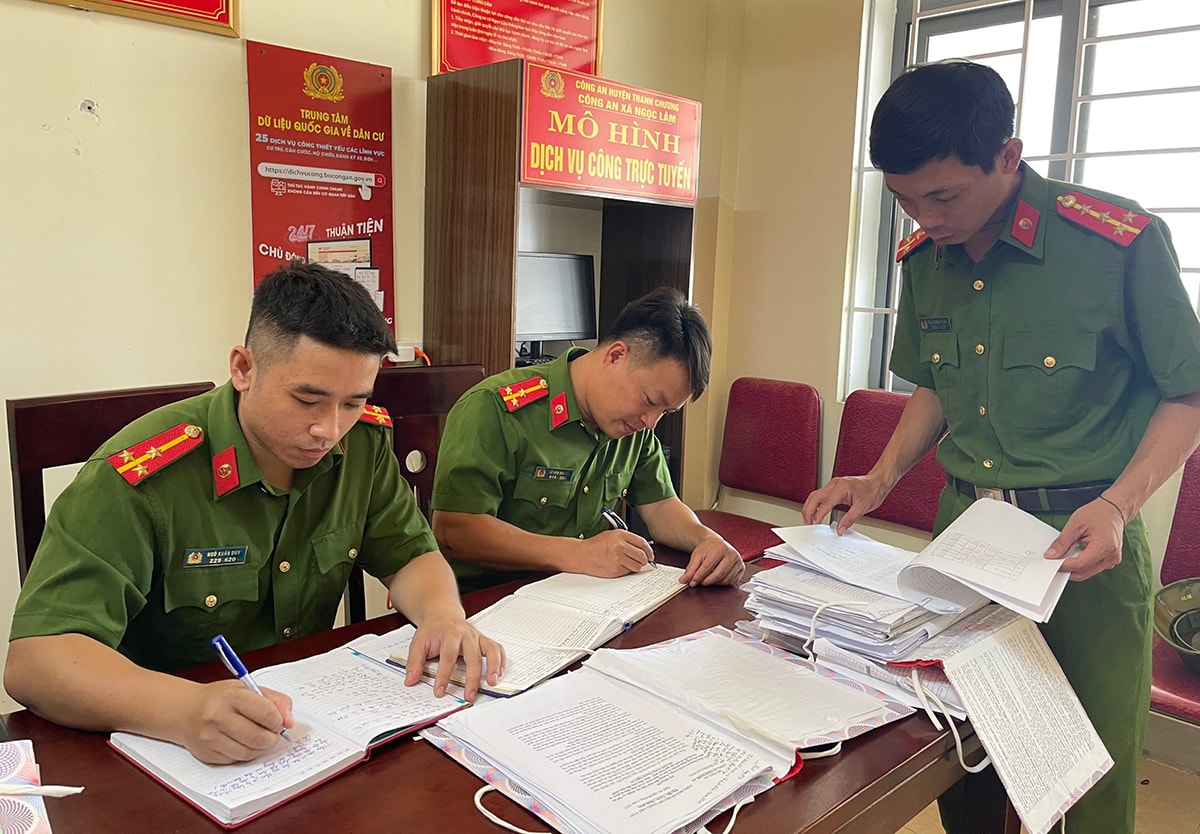
In addition, in this locality, 5/6 villages do not have 3G connection network, so connecting and activating VNeID accounts still faces many difficulties. Machinery and equipment in the commune are also lacking, making it difficult to meet the needs of implementing Project 06.
Currently, in the whole province, there are about 75,000 people working abroad, among them are workers who are still under contract, working legally, however, there are still workers whose contracts have expired and have fled to live illegally in other countries. There are people who have worked abroad before the issuance of citizen identification cards to replace the identity card and the activation of electronic identification. Because they cannot return home and there are people who cannot return home to re-issue citizen identification cards and activate electronic identification, the population data of this group of people is being interrupted. The overall impact on the completion of data on the digital platform.
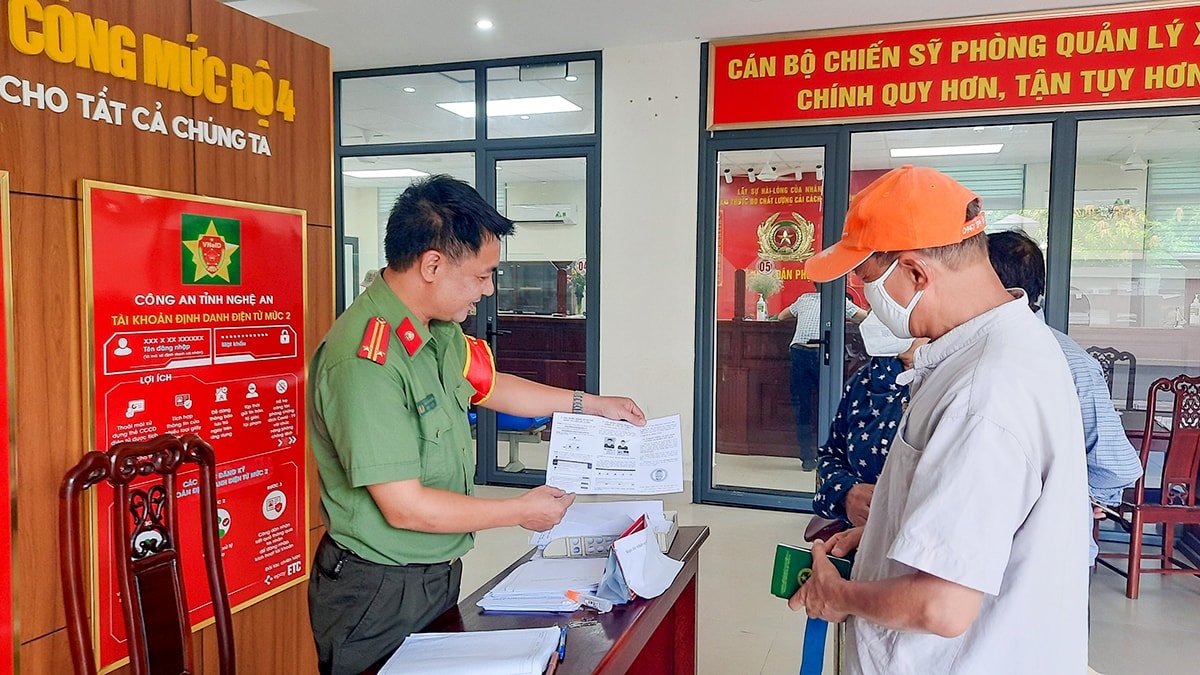

According to records, there are currently 19 decrees of ministries and branches that stipulate the submission and presentation of household registration books, temporary residence books or require the presentation of papers and documents confirming residence. These decrees are still in effect and are directly affecting the implementation documents of departments, branches and local authorities at all levels. Therefore, it has caused certain difficulties for people when carrying out transactions related to the decrees.
Mr. Ha Kien, a citizen who recently went to reissue his B2 driver's license at the Provincial Public Administration Center, expressed his concerns about the procedures. When reissuing his B2 driver's license, Mr. Kien photocopied his citizen ID and health certificate, so he did not bring his original citizen ID. At the transaction counter, Mr. Kien requested to open the VNeID software that had identified him at level 2, however, the officer receiving the request asked him to present both sides of his citizen ID (because on the VneID software, the citizen ID image of the account owner only displays the front, not the back). Mr. Kien had to return home to bring his original citizen ID for comparison.
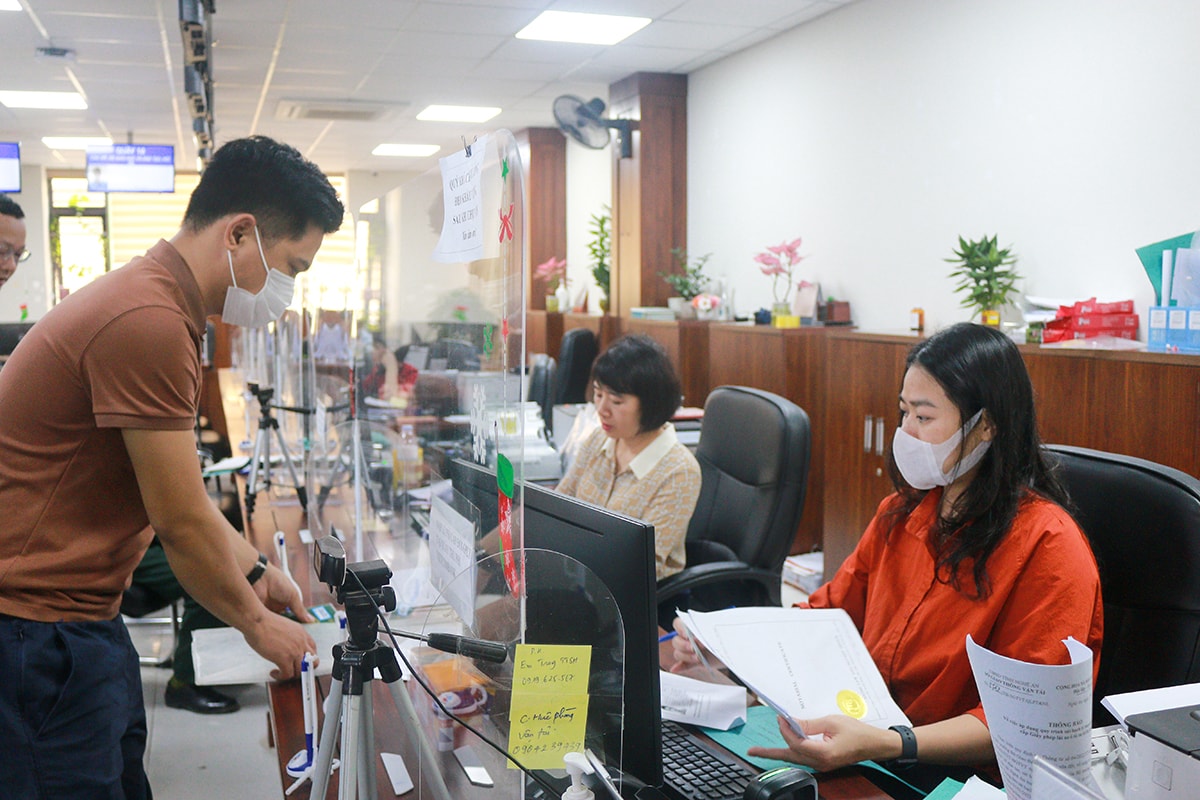
In addition, the current reality is that the transmission speed is still slow, the network is often interrupted, leading to a long time to receive documents. At the commune, ward and town levels, although equipped with machines to receive information, the state of old computers, printers and scanners with low configuration makes the reception and processing of information not quick. This makes people have the mentality of comparing the old way of doing things with the new way of doing things.
Most people in mountainous areas, especially ethnic minorities, do not have smartphones, or even phone numbers, so activating an electronic identification account, even if supported (by officials or family members to set up the account), is not effective because they do not have a phone to install the application. In many cases, when people in mountainous areas go to district hospitals for medical examination and treatment, because they do not have smartphones, they have to use traditional documents.
Mr. Dinh Hong Vinh - Chairman of the People's Committee of Tuong Duong district, said: In Tuong Duong, the force doing administrative management of social order of the district police only has 9 officers, in addition to performing the tasks of Project 06, also performing other tasks such as managing conditional investment and business sectors, fire prevention and fighting, rescue, management of weapons, explosives, support tools... Besides, Tuong Duong is a mountainous district with 17/17 communes with special difficulties, most of them are ethnic minorities, so the work of issuing citizen identification cards and electronic identification still has many difficulties, human resources do not meet practical requirements.

On the other hand, there are many cases where people intentionally declare false personal information or have incorrect information in papers, documents or do not remember personal information, affecting the progress of data cleaning for the National Population Database and other specialized data, and causing difficulties in processing citizen identification card applications.
Meanwhile, Nghe An is the largest province in the country, with 460 commune-level administrative units, so it is difficult to fully equip machines and means to meet the digital transformation in a short time. Not to mention, the majority of workers use non-owner phone numbers, so they do not create accounts to upload their records to public services. In addition, the level of information technology use of people is still limited, especially in mountainous districts, so they are still confused in the process of implementing in the electronic environment, accessing and submitting documents online does not achieve high results.
Not only local authorities at all levels, currently the implementation of online public services at some departments and branches also reveals some problems. At the Department of Transport, according to procedural regulations, people must go to a medical facility with the function to examine the health of drivers and to carry out online procedures at level 4 to issue and change driving licenses, there must be electronic health examination results shared on the National Public Service Portal. However, currently, many medical examination and treatment facilities in the province have not shared electronic health examination results on the National Public Service Portal system, so people must bring their health examination certificates to the People's Committee at the commune level for electronic certification (incurring additional administrative procedures and electronic certification costs), then use electronic certification of health examination results to register for the service of issuing and changing driving licenses, which causes inconvenience for people when doing the procedures.
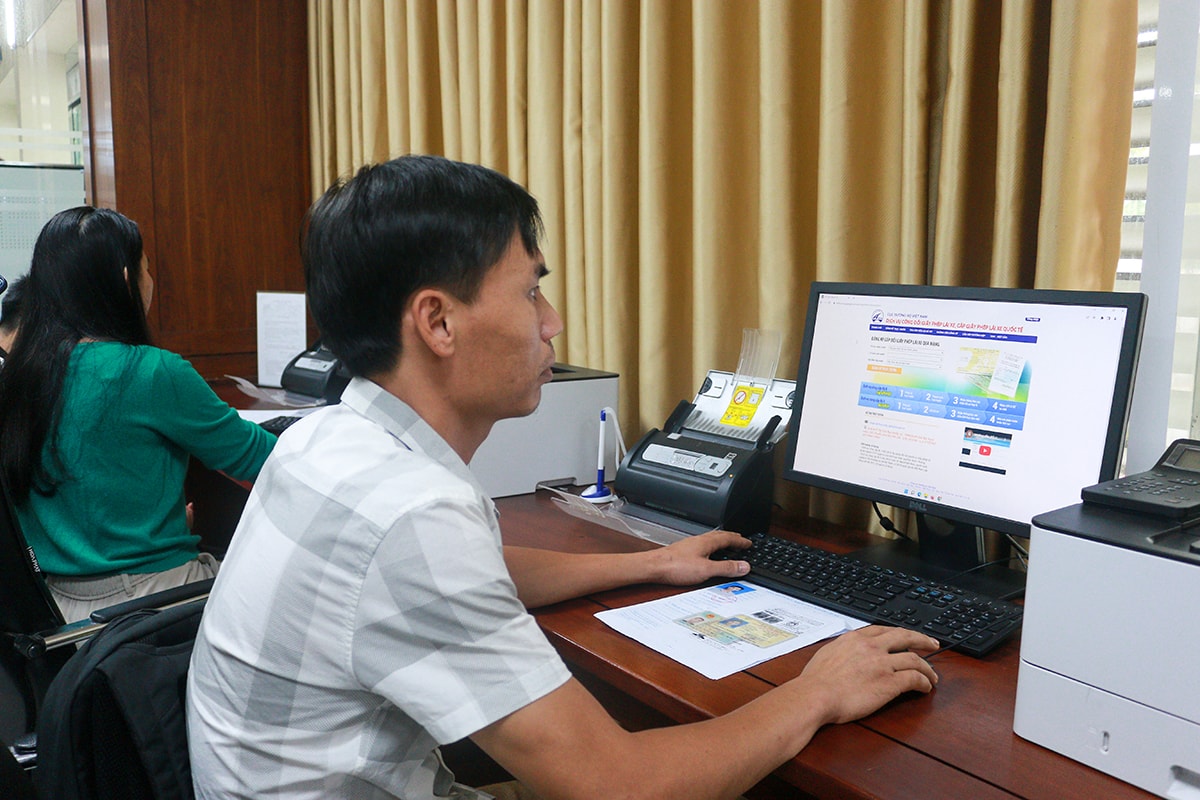
Along with that, according to regulations, people must have a bank account to pay online through the National Public Service Portal. However, when the registration is unsuccessful, refunding money to people is still an issue that needs to be resolved, to avoid prolonging and causing frustration for people.
In addition, currently, the implementation of medical examination and treatment using chip-embedded citizen identification cards still has some difficulties and problems. In many cases, citizen identification cards have not been integrated with health insurance data; in the past, medical examination and treatment facilities often kept health insurance in the records, and after completing the examination, the health insurance card would be returned to the people. However, currently, the use of citizen identification cards for medical examination and treatment replaces the insurance card, but medical facilities do not have the authority to keep citizen identification cards, so it is very difficult to manage patients...
In particular, the rate of electronic document authentication to ensure the components of the dossier on the Public Service Portal is still limited, leading to the fact that although the dossier has been submitted on the Public Service Portal, people still have to go to state agencies to present and compare the original documents with the documents attached on the Public Service Portal. The integration, authentication, and display of personal information and documents on the VNeID application, aiming to gradually replace the provision of personal documents in performing transactions and administrative procedures, has not been fully implemented. This has caused many difficulties for people in conducting online transactions, requiring fundamental solutions to remove obstacles, contributing to bringing Project 06 closer to life.
